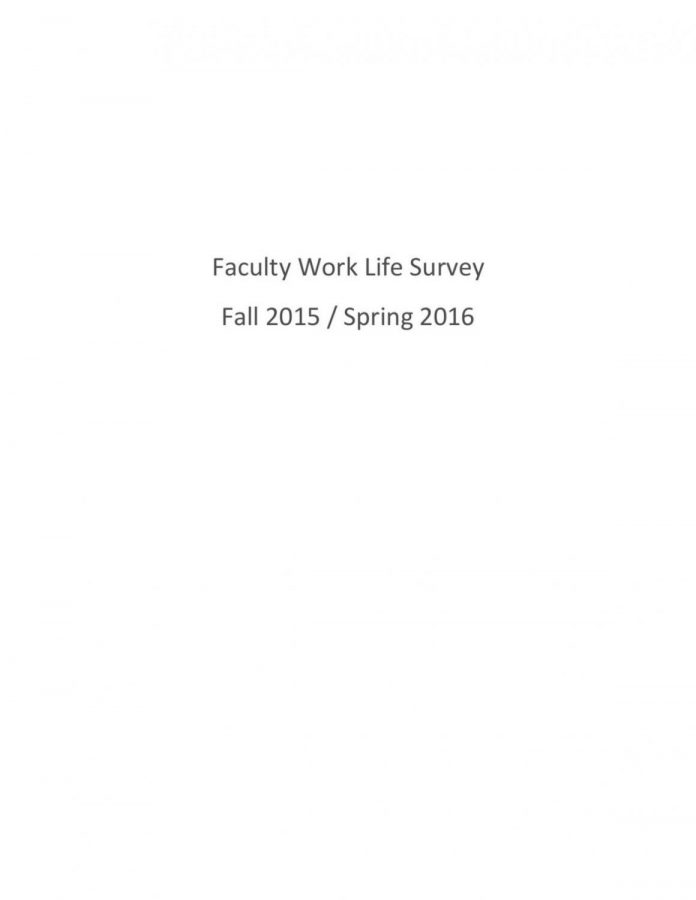Job satisfaction decreases in new faculty survey
August 29, 2016
Results from the Faculty Work Life Survey show a decreased approval in job satisfaction, a decrease in general faculty morale and a decrease in confidence in Gary Ransdell’s leadership from the previous academic year.
For the 2015-2016 survey, there were 439 responses. This was an increase from the 2014-2015 survey, which had 427 responses.
Most of the 2015-2016 respondents were associate professors, and the next highest number of respondents were assistant professors.
Additionally, the Potter College of Arts and Letters had the highest number of respondents with 131 responses, according to results from the survey.
Results from the general faculty morale for the 2015-2016 academic year show a 72.05 neutral or disapproving rating and a 27.95 approving rating.
This is a decrease from the 2014-2015 academic year where there was a 57.34 percent neutral or disapproving rating and a 42.68 approving rating.
Barbara Burch, faculty regent, said she had not yet seen the results of the survey, but felt that decreased morale may be because of the amount of time faculty has gone without receiving raises.
“That’s very difficult,” Burch said. “Everything else in your life increases.”
Additionally, the majority of respondents felt that their salary was unsatisfactory relative to their years of service and rank while at WKU.
When asked if their salary is satisfactory relative to their years of service and rank, 48.12 percent said they “strongly disagree.”
When asked if “overall, I have high job satisfaction,” 28.12 percent said they “disagree.”
Additionally, current Provost David Lee received higher rating’s than previous Provost Gordon Emslie received in the 2014-2015 survey.
Compared to the survey of Emslie’s performance, faculty felt that Lee better prioritized budget needs, was more accessible to faculty and more routinely consulted with faculty on institutional decisions.
Kate Hudepohl, an associate professor, was contacted for comment, but did not respond in time for publication.
In the 2015-2016 survey, an option to answer “no basis for judgment” was added. In the section asking about the Board of Regents’ performance for the 2015-2016 academic year, many respondents selected this as their answer.
In response to the statement “the Board of Regents supports the faculty’s role in institutional governance,” 24.94 percent answered “no basis for judgment.”
In response to the statement “the Board has a genuine interest in seeking input from the faculty, staff, and student regents,” 25.69 percent answered “no basis for judgment.”
The majority of faculty also felt that the Board of Regents did not make academics a priority. In response to the question “The Board of Regents makes academics the top priority,” 46.09 percent disagreed, 17.38 percent agreed and 36.52 percent felt neutral or had “no basis for judgement.”
Additionally, confidence in Ransdell’s leadership slightly decreased from the previous year. In response to the statement “I have confidence in the President’s leadership and endorse his continuance as President,” 40.05 percent agreed and 59.95 felt neutral or disagreed.
In the 2014-2015 Faculty Life Survey the same question was asked and 47.59 percent agreed, while 52.41 percent felt neutral or disagreed.
Reporter Monica Kast can be reached at 270-745-6011 or [email protected]. Follow her on Twitter at @monicakastwku.













